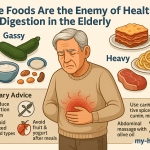This article is for informational purposes only and should not be considered medical advice. Always consult with a healthcare provider for personalized recommendations.
Understanding Heart Health
Heart disease remains a leading cause of death worldwide, making it essential to focus on nutrition that supports cardiovascular health. What if the foods you choose could significantly impact your heart’s well-being? Fortunately, many options are not only delicious but also beneficial for your heart. Understanding the pathophysiology of heart disease can help clarify why these foods are so important. Heart disease often arises from a combination of factors, including inflammation, oxidative stress, and high cholesterol levels. By choosing the right foods, you can combat these issues effectively.
Top 10 Heart-Healthy Foods
1. Fatty Fish
Fatty fish like salmon, mackerel, and sardines are rich in omega-3 fatty acids, which have been shown to reduce inflammation and lower the risk of heart disease. Omega-3s work by decreasing triglyceride levels, reducing blood clotting, and lowering blood pressure. Aim to include fish in your diet at least twice a week. For instance, a simple grilled salmon fillet with a squeeze of lemon can be both satisfying and heart-healthy. If you’re not a fan of fish, consider omega-3 supplements after consulting with your healthcare provider.
2. Leafy Greens
Vegetables such as spinach, kale, and Swiss chard are packed with vitamins, minerals, and antioxidants. They contain high levels of vitamin K, which helps protect arteries and improve arterial function. Leafy greens also provide nitrates that can lower blood pressure. Try adding a handful of spinach to your morning smoothie or enjoying a kale salad for lunch. Remember, the fresher the greens, the more nutrients they retain, so opt for organic or locally sourced options when possible.
3. Berries
Blueberries, strawberries, and raspberries are not only tasty but also rich in antioxidants called flavonoids. Studies suggest that these compounds may lower blood pressure and reduce inflammation. Flavonoids can improve endothelial function, which is crucial for maintaining healthy blood vessels. Incorporate berries into your breakfast cereal or yogurt for a sweet, heart-friendly treat. You might also consider freezing them for a refreshing addition to smoothies.
4. Avocados
Avocados are a fantastic source of monounsaturated fats, which can help lower bad cholesterol levels. They also provide potassium, which is essential for heart health. Potassium helps balance sodium levels in the body, reducing the risk of hypertension. Consider spreading avocado on whole-grain toast or adding it to salads for a creamy texture. Just remember that while avocados are healthy, they are calorie-dense, so moderation is key.
5. Nuts and Seeds
Nuts like almonds, walnuts, and seeds such as flaxseeds and chia seeds are excellent sources of healthy fats, protein, and fiber. Regular consumption of nuts has been linked to a reduced risk of heart disease. Nuts can lower cholesterol levels and provide essential nutrients like magnesium and vitamin E. A small handful of nuts can make for a great snack or salad topping. However, be cautious of portion sizes, as it’s easy to overindulge on these calorie-rich foods.
6. Whole Grains
Whole grains like oats, quinoa, and brown rice are high in fiber, which helps lower cholesterol and keeps your heart healthy. Fiber plays a crucial role in maintaining healthy blood sugar levels and promoting satiety, which can aid in weight management. Opt for whole-grain bread and pasta instead of refined versions. Start your day with oatmeal topped with fruit for a heart-healthy breakfast. You might also consider experimenting with quinoa salads or brown rice stir-fries.
7. Beans and Legumes
Beans, lentils, and chickpeas are excellent sources of protein and fiber, making them a perfect meat substitute. They help lower cholesterol and maintain healthy blood sugar levels. The soluble fiber found in beans can bind to cholesterol in the digestive system, helping to remove it from the body. Try a hearty bean chili or a chickpea salad for a nutritious meal. Incorporating beans into your diet a few times a week can provide substantial health benefits.
8. Olive Oil
Extra virgin olive oil is a staple in the Mediterranean diet and is known for its heart-healthy benefits. It contains antioxidants and healthy fats that can help reduce inflammation and lower cholesterol levels. The polyphenols in olive oil can also improve endothelial function. Use olive oil as a dressing for salads or for sautéing vegetables. When purchasing olive oil, look for cold-pressed varieties to ensure maximum health benefits.
9. Dark Chocolate
Surprisingly, dark chocolate can be heart-healthy when consumed in moderation. It contains flavonoids that may improve blood flow and lower blood pressure. Choose chocolate with at least 70% cocoa content and enjoy a small piece as an occasional treat. The key is moderation; while dark chocolate has benefits, it is still high in calories and sugar, so limit your intake to a few squares a week.
10. Citrus Fruits
Fruits like oranges, grapefruits, and lemons are high in vitamin C and other antioxidants. They may help lower blood pressure and cholesterol levels. Vitamin C is crucial for collagen production, which strengthens blood vessels. Start your day with a glass of fresh orange juice or add citrus slices to your salads for a refreshing twist. Additionally, consider using citrus zest to enhance the flavor of various dishes.
How to Incorporate These Foods into Your Diet
Incorporating heart-healthy foods into your daily meals doesn’t have to be difficult. Here are some practical tips:
- Plan your meals around these foods. For example, create a weekly menu that includes at least one serving of fatty fish and a variety of fruits and vegetables.
- Experiment with new recipes that feature these ingredients. Look for heart-healthy cookbooks or online resources for inspiration.
- Keep healthy snacks on hand. Stock up on nuts, seeds, and fresh fruits to avoid unhealthy snacking.
- Be mindful of portion sizes, especially with high-calorie foods like nuts and oils.
- Consider meal prepping to make it easier to include these foods in your diet throughout the week.
- Join a cooking class or online workshop focused on heart-healthy meals to gain new skills and ideas.
Myth vs. Fact
Myth: All fats are bad for heart health.
Fact: Healthy fats, such as those found in avocados and olive oil, are beneficial for heart health when consumed in moderation.
Myth: You need to completely eliminate red meat for heart health.
Fact: Lean cuts of red meat can be part of a heart-healthy diet when consumed in moderation and combined with plenty of fruits and vegetables.
Myth: You can’t enjoy sweets if you want to be heart-healthy.
Fact: Dark chocolate can be enjoyed in moderation and may even provide heart benefits.
Patient Vignette
Consider Sarah, a 52-year-old woman who recently learned about the importance of heart health after her father suffered a heart attack. Concerned for her own health, she began incorporating more heart-healthy foods into her diet, focusing on fatty fish, leafy greens, and whole grains. Within a few months, she noticed improvements in her energy levels and overall well-being. Sarah’s story illustrates how small dietary changes can lead to significant health benefits. After a routine check-up, her doctor noted a decrease in her cholesterol levels, affirming that her efforts were paying off.
Frequently Asked Questions
What are the best foods for heart health?
The best foods for heart health include fatty fish, leafy greens, berries, avocados, nuts, whole grains, beans, olive oil, dark chocolate, and citrus fruits.
How often should I eat fatty fish?
It is recommended to eat fatty fish at least twice a week to reap the cardiovascular benefits of omega-3 fatty acids.
Can I eat snacks while trying to maintain heart health?
Yes, healthy snacks like nuts, seeds, and fresh fruits can be part of a heart-healthy diet.
Is it necessary to avoid all types of fats?
No, healthy fats found in foods like avocados and olive oil are beneficial for heart health when consumed in moderation.
How can I make my meals more heart-healthy?
Focus on incorporating a variety of heart-healthy foods, plan meals around these ingredients, and experiment with new recipes.
Conclusion
Making heart-healthy food choices is a proactive way to support your cardiovascular health. By incorporating these top 10 foods into your diet, you can enjoy delicious meals while taking significant steps toward a healthier heart. Remember, small changes can lead to substantial improvements over time. Always consult with a healthcare provider for personalized advice tailored to your unique health needs.
Key Takeaways
- Fatty fish and leafy greens are key components of a heart-healthy diet.
- Berries and avocados provide essential nutrients and healthy fats.
- Whole grains and legumes support heart health through fiber and protein.
- Dark chocolate can be enjoyed in moderation for its cardiovascular benefits.
- Incorporating these foods can lead to significant health improvements.
References
- PubMed: Dietary Fats and Cardiovascular Disease
- WHO: Healthy Diet
- CDC: Heart Disease Facts
- NHS: Eating Well for Heart Health
- UpToDate: Nutrition and Heart Disease
- American Heart Association: Healthy Eating for a Healthy Heart








Post a comment